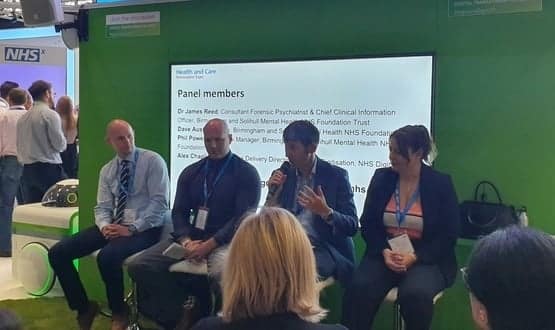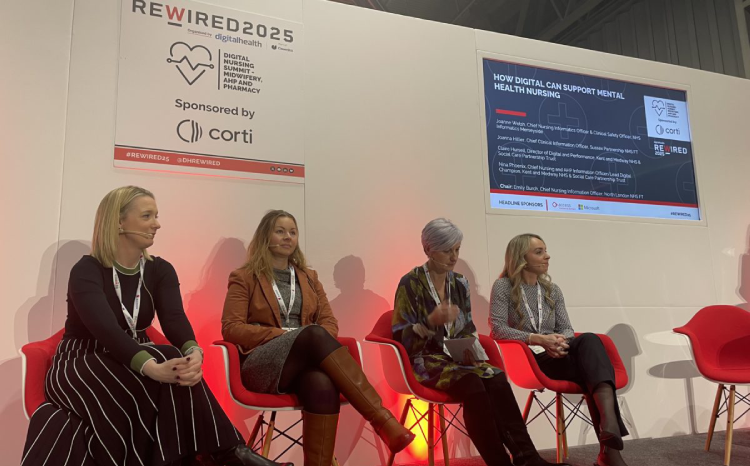Digital mental health ward ‘empowering clinicians like never before’
- 4 September 2019

Creating a digital ward at Birmingham and Solihull Mental Health Trust has “empowered clinicians like they’ve never been empowered before”, a matron at the trust has said.
Speaking at NHS Expo today (September 4), Dave Austin explained how the digital ward, which has been released as a Global Digital Exemplar (GDE) blueprint, had allowed clinicians to monitor patient data and identify why they are deteriorating in order to shape future clinical decisions.
The digital ward was originally designed as an electronic observations portal, but has since been expanded to include other vitals including food, fluids and mobility.
Austin said the uptake of digital tools by clinicians had been positive.
“Clinicians of all grades are now coming to me and saying ‘is there any way we can make this better for service users on the ward?’ They let us know what they want us to look at, then we look to see how we can work it through the portal,” he told the audience in Manchester.
“We are really empowering clinicians on the floor like they’ve never been empowered before to help us build systems.”
Dr James Reed, CCIO at the trust and chair of the CCIO Network, added that the data contained in the portal could eventually be used to tell clinicians about how wards are operating, length of stay, demands and capacity.
He encouraged other CCIO, CIO and digital programme managers to understand problems before creating a solution.
“The thing I’ve learnt is the value of presenting problems rather than solutions. What we were able to do was use the clinical staff to define the problem,” he said.
“We asked the staff as a body what they thought the problems were then we presented those problems to the developers.
“We didn’t really try and suggest what they should do about it so what they were able to do was provide a fairly clean view of what could be done with software to solve the problem rather than just producing a digital version of an observations chart.
“I think if we’d tried to design it that’s what we would have got, which would have been OK but I think what we ended up with was a far more interesting technology driven solution.”
Other key themes discussed in the presentation on how digital technology can improve mental health services was the importance of sharing the blueprint widely with non-GDE trusts.
The digital ward is one of several blueprints released in February as part of the national GDE programme.
Mr Reed said he hoped the blueprint “demonstrates what can be done” and that he saw the GDE role as a “way to help” other trusts further their digital maturity.
Read more:
- Call for investment in digital innovation for mental health services
- Homegrown app takes strain off wrists at mental health trust
- New CCIO Network chair pens first column for Digital Health News




